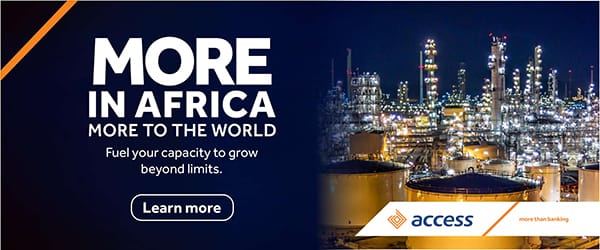FG to Screen Capital Projects for Public-Private Partnership Viability
Zainab Ahmed, Minister of Finance, Budget, and National Planning, said that from the 2021/2022 budget cycle, all infrastructure projects should be screened for Public-Private Partnership (PPP) viability. Ahmed stated this on Thursday in Abuja at a webinar organised by the Bureau of Public Enterprises (BPE) on “Financing PPP to boost infrastructure delivery in Nigeria”.
According to her, the projects should be in compliance with National Integrated Infrastructure Master Plan (NIIMP), be approved by the ministry and the BPE before inclusion in national budgets and subsequent procurement.
The minister, who also doubles as the Vice-Chairman, National Council on Privatisation, said the present administration was committed to development of the country’s infrastructure through PPP arrangements.
“All these efforts are to ensure that PPP takes a centre stage in the procurement of infrastructure in Nigeria.
“The government is ready and willing to dialogue and incorporate valuable suggestions from stakeholders with a view to further strengthen Nigeria’s PPP framework,” she said.
The minister said that the webinar was an opportunity to hear directly on the concerns and areas the participants would like the government to address. She noted that this would make investment beneficial and deliver value for money to the country at large.

Ahmed also solicited the support and cooperation of public and private sector partners, local and foreign partners, financial institutions and other important key stakeholders toward successful implementation of the government’s new PPP policy directive.
Mr Alex Okoh, the BPE Director-General, said that in line with its new role in the Administration of Concession Programme of the Federal Government, the bureau in collaboration with the Ministry of Finance, Budget and National Planning had developed a PPP project information tool.
Okoh said that the tool had been forwarded to the Ministries, Departments and Agencies (MDAs) to capture all current and proposed infrastructure projects in the country.
This, he said, would help document a pipeline of PPP projects across various sectors of the economy, adding that some MDAs had already submitted their PPP project information data as the final date for submission was May 31.
He further said that the bureau would partner with the U.K. Nigeria Infrastructure Advisory Facility to screen projects to ensure that only the ones that were financially and economically viable were included in the ‘National Pipeline of PPP Projects.
Okoh said that the BPE also intended to establish a revolving Project Development Fund and that the funds realised from the pool would be used to facilitate the proper structuring of PPP transactions.
The BPE boss said he was hopeful that financial institutions would support the initiative to increase the number of viable projects that could be successfully brought to commercial and financial close in the infrastructure space through PPPs.
“Considering the huge gap in infrastructure stock in the country and the quantum of funding required to bridge this gap, the role of private sector financing through PPPs has assumed very significant importance, hence the need to host the webinar.
“Going by the (NIIMP) and the Economic Recovery and Growth Plan report, Nigeria needs up to three trillion dollars over the next 30 years to close the infrastructure deficit.
“To put this in perspective, three trillion dollars over 30 years translates to the sum of 100 billion dollars every year.
“When we consider that the total expenditure under the 2021 national budget is N13.59 trillion, which is just over 34 billion dollars, it is clear that the traditional method of financing infrastructure development through budgetary allocations is grossly inadequate,” Okoh said.
He said that consequently, and given the present fiscal constraints, there was a pressing need to explore other funding options, hence the drive to attract private sector capital and financing through PPP arrangements.
Also, Mr Micheal Ohiani, the acting Director-General, Infrastructure Concession Regulatory Commission (ICRC), urged the private sector to act now to bridge the infrastructure gap as was the practice in other parts of the world.
Ohiani said that the macro economic framework for the medium term national development plan for 2021 to 2025 was undergoing fine tuning and would embrace foreign investment of N348.1 trillion.
According to him, the private sector is expected to contribute N298.3 trillion of the amount.
He said that employment generation was projected to increase by about 20 million people, while the number of those to be lifted out of poverty was projected at 25 million.
The ICRC boss added that government net revenue at all levels was expected to increase to 35 per cent of Gross Domestic Product by 2025.
Another speaker, Mr Kingsley Obiora, Deputy Governor, Economic Policy, Central Bank of Nigeria, presented a paper titled “Financing Infrastructure in Nigeria— An Innovative New Approach”.
Obiora said in addition to Nigeria’s fast-paced growth in population, it would be unable to thrive in the post-COVID-19 economy without the backbone of strong infrastructure.
He said that investors need bankable project pipelines, but that 80 per cent of infrastructure projects fail at the feasibility and business-plan stage due to limited capabilities in designing and implementing infrastructure projects.
“These are the main rationales why we believe we need a new model that responds to this challenge and clearly meets the requirements laid out above.
“The CBN, the African Finance Corporation and the Nigeria Sovereign Investment Authority has contributed one trillion naira as equity into a world class infrastructure development vehicle called “The Infrastructure Corporation of Nigeria (InfraCorp).
“This equity will be leverage and manage by Independent Infrastructure Fund Managers and will be utilised to support the Federal Government in building the transport infrastructure required to move agriculture products to processors, raw materials to factories and finished goods to markets,” he explained.
Obiora noted that the remaining equity and debt would be raised by the independent internationally-rated fund manager who would adopt world-class risk management and project management techniques.
He said that the techniques would identify, originate, structure, execute and manage end-to-end bankable infrastructure projects in Nigeria, thereby, harnessing opportunities for infrastructure development.
Obiora added that the InfraCorp fund was a N15 trillion vehicle, denominated in naira to totally avoid or substantially mitigate foreign exchange risk.
FG to Screen Capital Projects for Public Private Partnership Viability













